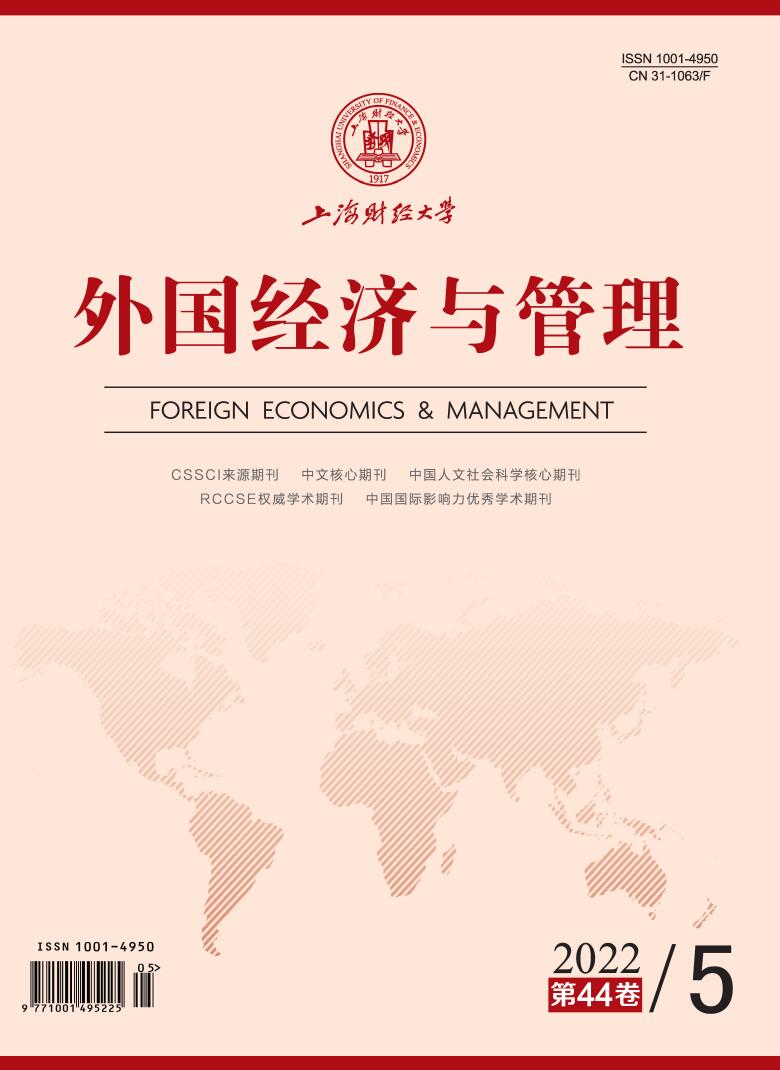[1] Cai Ning. Does Cultural Difference affect M&A Performance: A Study from the Perspective of Dialect[J]. Accounting Research,2019, (7): 43-50.
[2] Chen Binkai, Chen Siyu. Mobile Social Capital -- Does traditional Clan Culture Influence Immigrant Employment?[J]. Economic Research Journal,2018, 53(3): 35-49.
[3] Chen Shenglan, Ma Hui. Short selling pressure and Corporate Mergers and Acquisitions: Quasi-natural experimental evidence from Deregulation of Short Selling[J]. Management World,2017, (7): 142-156.
[4] Huang Zhangkai, Liu Jinyu, Ma Guangrong. Location, high-speed rail and information: Evidence from China's IPO market [J]. World Economics,2016, 39(10): 127-149.
[5] Li Shanmin, Gong Shuyu, Zhuang Mingming. Do cultural differences influence CEO M&A decisions?[J]. Management Review,2019, 31(6): 144-159.
[6] Lu Dong, Huang Dan, Yang Dan. The Power of the Board of Directors and the efficiency of mergers and Acquisitions in State-owned Enterprises[J]. Management World,2019, 35(6): 119-141.
[7] Liu Bailu, Lu Changjiang. Research on M&A Behavior Based on Long-term Value Orientation -- Taking Chinese Family Enterprises as Evidence[J]. Accounting Research,2018, (6): 47-53.
[8] Ma Guangrong, Yang Enyan. Social networks, informal finance and entrepreneurship[J]. Economic Research Journal,2011, 46(3): 83-94.
[9] Pan Hongbo, Yu Minggui. The supportive hand, the predatory hand and the long-distance merger and acquisition[J]. Economic Research Journal,2011, 46(9): 108-120.
[10] Pan Hongbo, Yu Minggui. Accounting information quality, property right nature and M&A performance of target companies[J]. Financial Research,2014, (7): 140-153.
[11] Pan Yue, Ning Bo, Ji Xiangge, et al. The patriarchal brand of private capital: Evidence from the perspective of financing constraints[J]. Economic Research Journal,2019, a,54(7): 94-110.
[12] Pan Yue, Weng Ruoyu, Ji Xiangge, et al. Clan culture and consanguinity complex of family business governance [J]. Management World,2019, B,35(7): 116-135.
[13] Peng Cong, Shen Yu, Zhang Zongyi. Do executive alumni circles reduce market segmentation?-Based on the perspective of remote merger and acquisition[J]. Management World,2020, 36(5): 134-144,160.
[14] Wan Liangyong, Hu Jing. Network location, Independent Director Governance and Corporate M&A: Empirical evidence from Chinese Listed Companies [J]. Nankai Management Review,2014, 17(2): 64-73.
[15] Wan Liangyong, Liang Chanjuan, Rao Jing. Study on industry peer effect of listed companies' M&A decisions. Nankai Management Review,2016, 19(3): 40-50.
[16] Wang Chenhao, Wang Yi, Li Hongbo. Clan culture and enterprise merger and acquisition earnings[J]. Accounting Research,2020, (2): 101-116.
[17] Wang Yan, Kan Shuo. Corporate culture and M&A performance[J]. Management World,2014, (11): 146-157.
[18] Wang Yan, Li Shanmin. Does social trust improve M&A performance?[J].Management World,2017, (12): 125-140.
[19] Xu Nianxing, Xie Rongrong, Wu Shinnong. Chinese family business management: Governance model, leadership model and firm performance[J]. Economic Research Journal,2019, 54(12): 165-181.
[20] Alesina A, Giuliano P. Family ties and political participation[J]. Journal of the European Economic Association,2011, 9(5): 817-839.
[21] Bottazzi L, Da Rin M, Hellmann T. The importance of trust for investment: Evidence from venture capital[J]. The Review of Financial Studies,2016, 29(9): 2283-2318.
[22] Du X Q. What's in a surname? The effect of Auditor-CEO surname sharing on financial misstatement[J]. Journal of Business Ethics,2019, 158(3): 849-874.
[23] Faccio M, Masulis R W. The choice of payment method in European mergers and acquisitions[J]. The Journal of Finance,2005, 60(3): 1345-1388.
[24] Fukuyama F. Trust: The social virtues and the creation of prosperity[M]. New York: Free Press, 1995.
[25] Greif A, Tabellini G. Cultural and institutional bifurcation: China and Europe compared[J]. American Economic Review,2010, 100(2): 135-40.
[26] Haleblian J, Devers C E, McNamara G, et al. Taking stock of what we know about mergers and acquisitions: A review and research agenda[J]. Journal of Management,2009, 35(3): 469-502.
[27] Kang J K, Kim J M. The geography of block acquisitions[J]. The Journal of Finance,2008, 63(6): 2817-2858.
[28] Peng Y S. Kinship Networks and entrepreneurs in China’s transitional economy[J]. American Journal of Sociology,2004, 109(5): 1045-1074.
[29] Zingales L. The “cultural revolution” in finance[J]. Journal of Financial Economics,2015, 117(1): 1-4.





 3770
3770  4166
4166

